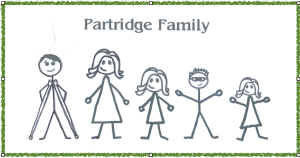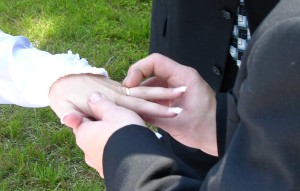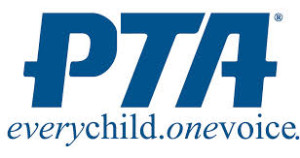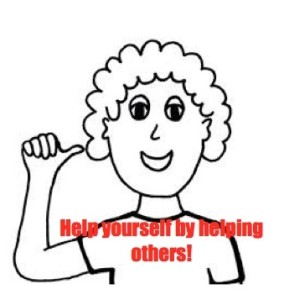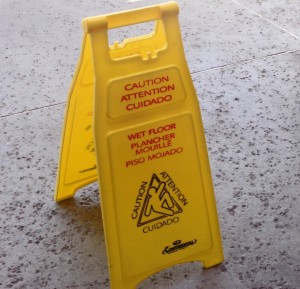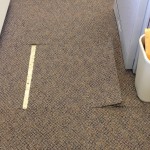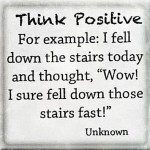 In coming to terms with accepting and living with my disability I have said to my therapist many times, “I just want the normal problems in life.” Facing the decision of whether or not to amputate a leg definitely doesn’t fall into the ‘normal life problems’ category.
In coming to terms with accepting and living with my disability I have said to my therapist many times, “I just want the normal problems in life.” Facing the decision of whether or not to amputate a leg definitely doesn’t fall into the ‘normal life problems’ category.
Five surgeries ago I made a decision that most people would have found difficult to make and many would have not taken my path. I chose to give up the range of motion in my ankle by having the tibia/talus ankle joint fused. The dome of my talus was destroyed, therefore my ankle joint was compromised and there were no permanent fixes for the problem. We were coming into a time where orthopedic medicine was starting to consider ankle fusion a dirty word, yet was unable to give any kind of viable solution that would avoid going down a path of many surgeries. Yes, the solutions might preserve my range of motion for a short time, but with the level of walking and standing my career involved I was told I would have little relief in pain. I was also definitively told by all surgeons that it would eventually have to be fused no matter what immediate route I chose. So, to save my career and avoid going down a path of multiple surgeries with long recoveries, I made the choice to forever change the anatomy of my lower leg and fuse my ankle. In the end the orthopedic doctors all agreed with what all my research and the many testimonials from those who fused their ankles said: fusing the ankle was the permanent solution to ensure pain-free walking. Unfortunately, my choice didn’t have me avoid the very path I was trying to avoid, including losing my career. Now, after six surgeries and having both of the two joints that make up the ankle fused, the last thing I want to do is continue trying surgeries. Just as I took the choice of fusing the ankle as a permanent solution, I now strongly feel it is time to make the next permanent solution amputation.
Amputation is a powerful and scary word. It is a decision most could never imagine making and one you would do anything to avoid. It is a decision that has drastic ramifications and there is no turning back. When I tell someone I want to have my lower leg amputated I get one of three reactions: they are horrified, they don’t take me seriously, or they respond in a matter-of-fact way that makes me think they didn’t comprehend what I said. Their reaction comes from the natural fear we have of losing a part of our body, especially a leg. Their reaction comes from not being able to understand what it is like to live with chronic pain. And the reaction comes due to living in a world where modern medicine can fix everything – pop a pill, get a joint replacement, have an organ transplant or fix it with surgery and problem solved. Over the winter I befriended a guy who works in my building who had broken his leg. He was given temporary parking in the garage where I park while he recovered, so we became “crutch buddies” while crutching into the building each morning. At the end of his need for using crutches he asked if there was any hope for fixing my leg. When I responded that I was strongly considering amputation, he said, “I could never do that, I am pretty attached to my leg.” My response was, “That is because you have no need to, you have experienced healing.”
I have not experienced the miracles of today’s medical science. Instead, what started as a small fracture has resulted in a long string of complications that led to six painful surgeries, six long recoveries, ten leg casts, chronic pain and six years of using crutches. With each surgery I forged ahead to the next, hoping for relief of pain, hoping just to be able to walk comfortably and be able to shed the crutches. To walk was all I wanted – I had given up on returning to my active life. I just wanted to be relieved from the pain. Yet instead of getting relief, the pain became worse after the last two surgeries. I now carry this painful appendage around with me like extra baggage. Therefore it is no longer the crutches I am looking to discard – it’s the painful appendage.
Two years ago I traded hope and waiting for action and living. I made the choice to stop seeking out doctors and surgeries to fix the problem. It seemed pretty clear the problem wasn’t fixable and the doctors really weren’t giving me any viable solutions. Yes, there were things they suggested and wanted to try, but they were all stabs in the dark solutions that simply prolonged the waiting game. I wanted the game to end, so decided I had to make the best of what I still had and try to live with my circumstance. Even then I knew the clear solution was amputation and if my surgeon could switch hats from the surgeon who took an oath to restore his patient’s skeletomuscular system to just a doctor, he would agree that amputation was the best solution. However, I was not ready to make the decision. I was not strong enough mentally or emotionally to go through any additional surgery and certainly not an amputation. I also felt I desperately needed to find my way back into life. I needed a job to help support my family, I needed to find ways to spend quality time with my family and I needed to get to a place where I felt good about myself. Deep down there was also a part of me that was holding out for the miracle cure. I no longer felt like a productive human being and my age was quickly becoming a factor. I felt like I had already lost four years of my life and I needed to take my life back and learn to live with my disability.
So I gave up on my messed up leg, grabbed a pair of sidestix (forearm crutches) and threw myself back into life. I set three goals for myself:
- Retrain myself for a new career.
- Discover adaptive ways to enjoy life and active hobbies.
- Find ways to make a difference.
Two years later I have managed to live rather well on a pair of crutches. I am proud to have accomplished all three goals. I recently received an outstanding one year review at my new job. I have found plenty of ways to be active including biking, swimming, skiing, snowshoeing and working out. I have taken my experiences, battles, and successes to help others going through similar circumstances by telling my story on my website/blog. My need to make a difference is being fulfilled, as I receive weekly messages from people all over the world, thanking me for helping them by sharing my story and tips. So to the average eye, I look like I am doing fine and considering everything, I am doing well. But it might be better!
What people don’t see is the relentless pain I live with each day. My lower left leg and foot
are engulfed in some level of pain or discomfort every waking minute of the day. I go to sleep to a throbbing heartbeat in my ankle. I awake several times during the night to deep bone aching that becomes mind numbing. I have even experienced pain in my dreams, having sleep not even provide relief. It has become normal to spend several hours lying awake in incredible pain during the night and I no longer know what it is like to be comfortable in bed. Most days I dread dropping my left leg off the bed and avoid any manipulation or use of it for as long as I can. I spend my days trying to figure out what to do with my painful useless appendage. It has become exhausting to lift and hold my foot off the ground, and there are days where I am unable to tolerate holding my leg up that makes ambulation difficult, not the crutches. Here and there I attempt to do something that requires setting the crutches aside for a short time and pay a very high price. The pain later is the equivalent of post-surgical pain and the 4 hours elapsed without taking the next dose of pain medication. To put it simply, for me, the act of walking and standing means extreme pain. My crutches have become my salvation, my way of ambulation, and my only source of relief. Therefore, I’m spending most of my days wishing my leg was gone and that I could just get around on my crutches without the leg in my way.
Despite the pain, willingly being knocked out and letting a doctor cut off your lower leg, and waking up minus a foot and ankle, is absolutely terrifying. I can’t yet even begin to imagine the fear I will face the hours and minutes before being knocked out for surgery. The fact is that I know being freed of this painful leg will give me a better quality of life and I am ready to face amputation with a positive attitude and with no regrets. As my surgeon warns, there are no guarantees – my entire leg has damage from the six years of lack of use, and my knee spends too much time bent to keep my foot off the ground or contracted due to pain. This is putting me at a higher risk of knee contracture and chronic pain can play unexplainable mind games. All this could make using a prosthetic difficult or not doable. My doctor says that “our goal is hopefully to have you walking comfortably with a prosthetic,” and yes, that will be an amazing goal to achieve. My immediate goal however is to not have pain – anything else will be an incredible gift – as not having the excruciating leg to deal with will mean a better quality of life. It is time to relieve myself from this pain and begin yet another new chapter of my life. I face amputation with the knowledge that I have already proven I am strong. I’ve proven I can still achieve and be a productive person despite disability. The recovery will set me back a bit, however I refuse to let life end with amputation. I will quickly hop back up onto my crutches and keep “moving right along”.
So on September 24, 2014, I will bid my painful left leg farewell as it will be amputated just below the knee. My one month countdown has officially begun. Like my Facebook page https://www.facebook.com/pages/livinglifeoncrutchescom/479968625434021?ref=hl to follow my countdown and recovery! I will share my thoughts as I experience the last days of having two legs, how I will prepare for amputation and my progress post amputation.
I am very grateful that I have been given the strength to overcome my adversities. Please know that I share my story to help others struggling with similar circumstances. My story can only help those it reaches, so please share this post in any way you can.
Thank you for reading! Please subscribe to never miss a post or come back in two weeks for my next post, “How Humor Makes Life Less Stressful”.


